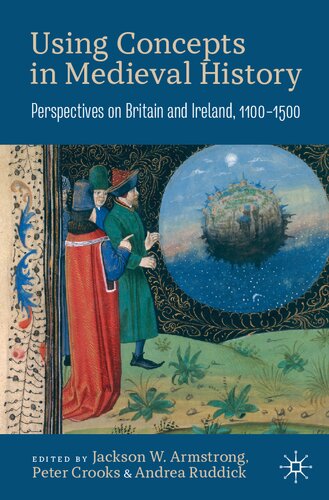

Most ebook files are in PDF format, so you can easily read them using various software such as Foxit Reader or directly on the Google Chrome browser.
Some ebook files are released by publishers in other formats such as .awz, .mobi, .epub, .fb2, etc. You may need to install specific software to read these formats on mobile/PC, such as Calibre.
Please read the tutorial at this link: https://ebookbell.com/faq
We offer FREE conversion to the popular formats you request; however, this may take some time. Therefore, right after payment, please email us, and we will try to provide the service as quickly as possible.
For some exceptional file formats or broken links (if any), please refrain from opening any disputes. Instead, email us first, and we will try to assist within a maximum of 6 hours.
EbookBell Team

4.0
96 reviewsThis book is the first of its kind to engage explicitly with the practice of conceptual history as it relates to the study of the Middle Ages, exploring the pay-offs and pitfalls of using concepts in medieval history. Concepts are indispensable to historians as a means of understanding past societies, but those concepts conjured in an effort to bring order to the infinite complexity of the past have a bad habit of taking on a life of their own and inordinately influencing historical interpretation. The most famous example is ‘feudalism’, whose fate as a concept is reviewed here by E.A.R. Brown nearly fifty years after her seminal article on the topic. The volume’s contributors offer a series of case studies of other concepts – 'colony', 'crisis', 'frontier', 'identity', 'magic', 'networks' and 'politics' – that have been influential, particularly among historians of Britain and Ireland in the later Middle Ages. The book explores the creative friction between historical ideas and analytical categories, and the potential for fresh and meaningful understandings to emerge from their dialogue.